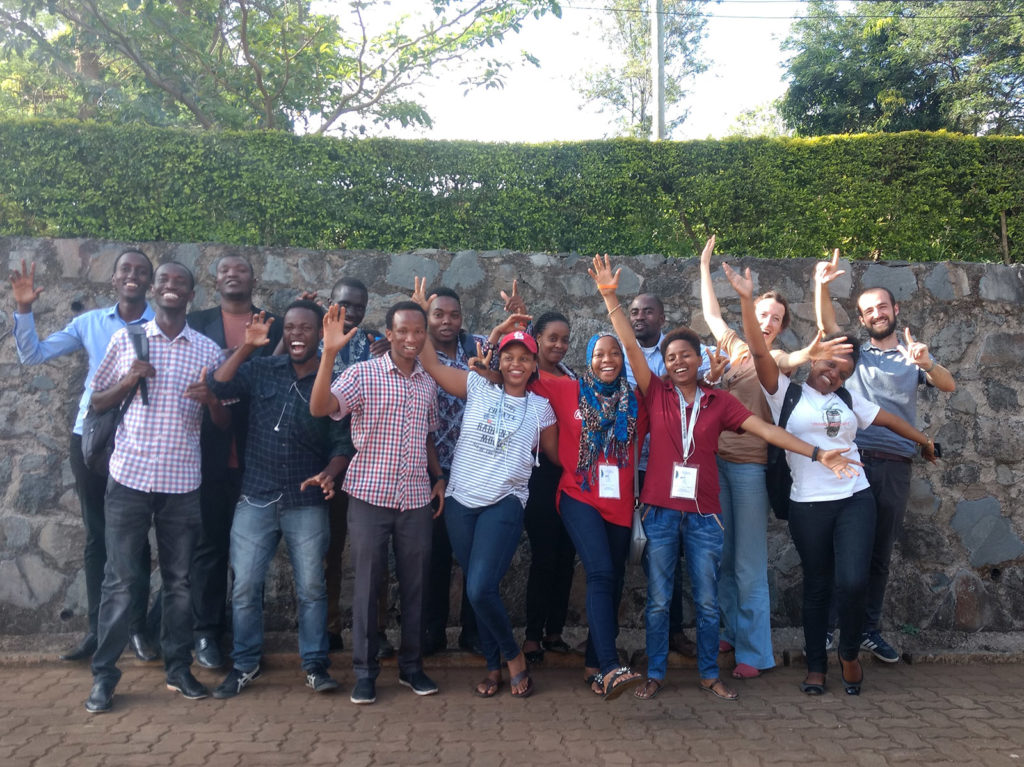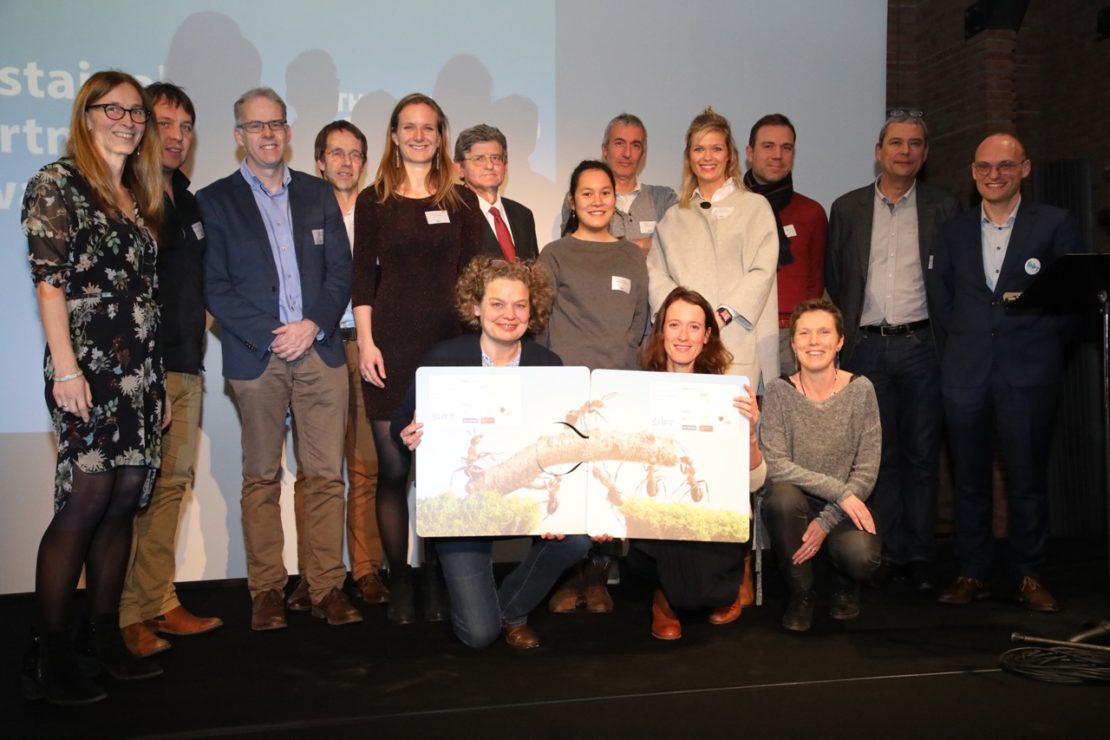‘Wanted: Food for the Future’ wins Sustainable Partnerships Award
On December 6, 2017, our project ‘Wanted: Food for the Future’ won the Sustainable Partnerships Award of The Shift (the Belgian sustainability network). The award showcases the best examples of international collaboration between the public sector, companies and non-profit organizations. Our project combines the expertise of the Flemish Brabant province, Rikolto (previously known as VECO), Colruyt Group, KU Leuven and the UCLL University of Applied Sciences. Together, we search for solutions to feed the growing world population in a sustainable and healthy way. Young people are centerpiece of these solutions and actively participate in all parts of the project. The ultimate goal is to fuel the debate and to involve the consumer of the future in this search. In short: to put innovation into practice by combining the expertise of everyone who has a stake in this research.
This participatory approach, co-creating solutions to commonly shared challenges, has proven to be of great added value. The province of Flemish Brabant is initiator of the project and involves young people, the business community and educational institutions through its extensive network.
Rikolto brings in its international expertise setting up food chains and coaching farmer organizations. It acts as a hub for co-creation and translates the project results into a school program. Furthermore, it challenges young entrepreneurs in Belgium, Tanzania, Indonesia and Peru to join the search for food for the future. As part of this project, partners develop new value chains based on 3 crops: seaweed, legumes and other crops.
Colruyt Group, the biggest retailer in Belgium, is committed to bring new sustainable products onto the market such as tricolore quinoa from Peru. In addition, the retail group strengthens the North-South connection with training projects for young people through the Collibri Foundation in the region where the quinoa is sourced. Peruvian youngsters receive technical support for the cultivation of quinoa or related crops. for the cultivation of quinoa or related crops.
KU Leuven provides scientific support and conducts action research on the collaboration within the consortium, while UCLL actively involves students in marketing, nutrition and dietetics
.
A new way of working together
The cooperation within this project is exceptional: the 5 partners share a common goal, yet they do not always share the same approach. “In the food debate, emotions often flare up between scientists, companies and NGOs. This project creates a safe space to openly discuss challenges, bottlenecks and actions,” says Tie Roefs (the Flemish Brabant province).
“It is crucial that everyone has stepped into this project with an open attitude,” says Caroline Huyghe (Rikolto). “Everyone was committed to work with us for three years, without knowing in advance what the exact final goal would look like. This way of working goes beyond the linear project logic that governments and NGOs use too often. It is a collaboration based on trust where you can respond to opportunities in consultation”, says Huyghe.
The word ‘wanted’ in the title of the project has been carefully chosen. “The entry point is that nobody holds the whole truth on this subject. We don’t know today what the food for the future will look like, so we want to participate in an open debate about this,” adds Erik Mathijs (KU Leuven).
Young people: consumers and entrepreneurs of the future
“We actively involve our food science students in product development and our marketing students in coming up with new ideas for the marketing of sustainable and healthy food. This way, the students shape the food for the future,” says Sebastiaan Boussauw, lecturer at the UCLL. In addition, primary and secondary school teachers have started using Food for the Future curriculum that immerses Belgian pupils in the subject.
Young entrepreneurs in Tanzania, Peru, Indonesia and Belgium are also encouraged to think along about the food for the future, through workshops that start from their local reality and needs. The goal is to raise awareness and to inspire them for new business ideas through a global network.

Young entrepreneurs in Arusha (Tanzania) joined the search for the Food for the Future


